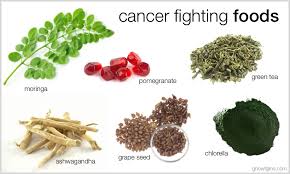
Diagnosed with Cancer? Your two greatest challenges are understanding cancer and understanding possible side effects from chemo and radiation. Knowledge is Power!
Learn about conventional, complementary, and integrative therapies.
Dealing with treatment side effects? Learn about evidence-based therapies to alleviate your symptoms.
Click the orange button to the right to learn more.
- You are here:
- Home »
- Blog »
- Healthy Living Products »
- Breast Cancer- Cruciferous Veggies Reduce Relapse
Breast Cancer- Cruciferous Veggies Reduce Relapse

…cruciferous vegetable intake during the first 36 months after diagnosis was associated with a reduced risk for total mortality, breast cancer specific mortality, and recurrence….
A diagnosis of breast cancer is less about achieving remission than it is about remaining in remission. A number of studies cite the inflammation caused by chemo and radiation as a possible cause of relapse. Cruciferous veggies reduce the risk of relapse.
According to the study linked and excerpted below, women who eat lots of “bioactive compounds, such as isothiocyanates and indoles” relapse 21%-35% less than women who don’t.
The only challenge presented by the study below is that the Chinese women sampled, on average, eat more cruciferous veggies than American women do.
The solution to this challenge is to include a cruciferous veggie supplement in your diet each day. I take Standard Process Cruciferous Complete because cruciferous veggies are cytotoxic to my own cancer. While I do eat lots of fruits and veggies daily I take this supplement is a whole food supplement and I want to make sure I get lots of “isothiocyanates and indoles” into my system daily.
I am both a cancer survivor and cancer coach. Have you been diagnosed with breast cancer? If you are interested in learning more about evidence-based, non-toxic therapies please scroll down the page, post a question or comment and I will reply to you ASAP.
Thank you,
David Emerson
- Cancer Survivor
- Cancer Coach
- Director PeopleBeatingCancer
Recommended Reading:
- Why a Cancer Coach?
- Chemo Brain Therapies in Breast Cancer
- Health Report: Breast Cancer and Chemicals
Cruciferous Veggies Boost Survival in Breast Cancer Patients
“The consumption of cruciferous vegetables might have a positive impact on survival in breast cancer patients, according to the results of a new study.
The Shanghai Breast Cancer Survival Study, a large population-based prospective cohort study of Chinese breast cancer survivors, showed that eating cruciferous vegetables after a diagnosis of breast cancer was associated with improved survival in a population of Chinese women...
The researchers found that after adjustment for confounders such as demographics, clinical characteristics, and lifestyle factors, cruciferous vegetable intake during the first 36 months after diagnosis was associated with a reduced risk for total mortality, breast-cancer-specific mortality, and recurrence.…
(Researchers) observed that across increasing quartiles of cruciferous vegetable consumption, the risk for
- total mortality decreased by 27% (to 62%),
- the risk for breast-cancer-specific mortality decreased by 22% (to 62%),
- and the risk for recurrence decreased by 21% (to 35%).
“The level of bioactive compounds, such as isothiocyanates and indoles, suspected of playing a role in the anticancer effects of cruciferous vegetables, depend on the amount and type of cruciferous vegetables consumed.”
Dr. Nechuta suggested that breast cancer survivors in the United States follow the general nutrition guidelines of eating vegetables daily, and consider increasing their intake of cruciferous vegetables, such as cabbage, cauliflower, and broccoli, as part of a healthy diet…
Eating cruciferous vegetables may improve breast cancer survival
“Breast cancer survivors can follow the general nutritional guidelines of eating vegetables daily and may consider increasing intake of cruciferous vegetables, such as greens, cabbage, cauliflower and broccoli, as part of a healthy diet,” said Nechuta.
Nechuta, Xiao Ou Shu, M.D., Ph.D., and colleagues investigated the role of cruciferous vegetables in breast cancer survival among women in the Shanghai Breast Cancer Survival Study, a prospective study of 4,886 Chinese breast cancer survivors who were diagnosed with stage 1 to stage 4 breast cancer from 2002 to 2006. Shu, Ingram Professor of Cancer Research, is the principal investigator of the Shanghai Breast Cancer Survival Study…
Survival rates were influenced by vegetable consumption in a dose-response pattern. As women ate more of these vegetables, their risk of death or cancer recurrence decreased.
Women who were in the highest quartiles of intake of vegetables per day had a 62 percent reduced risk of total mortality, 62 percent reduced risk of breast cancer mortality, and 35 percent reduced risk of breast cancer recurrence, compared to women with the lowest quartile of intake.”
Nechuta noted that cruciferous vegetable consumption habits differ between China and the United States and suggested this fact be considered when generalizing these results to U.S. breast cancer survivors.
“Commonly consumed cruciferous vegetables in China include turnips, Chinese cabbage/bok choy and greens, while broccoli and Brussels sprouts are the more commonly consumed cruciferous vegetables in the United States and other Western countries,” she said. “The amount of intake among Chinese women is also much higher than that of U.S. women.”
Cruciferous vegetables contain phytochemicals known as isothiocyanates and indoles which appear to have a protective effect against some types of cancer.
Nechuta said the level of these bioactive compounds, proposed to play a role in the anticancer effects of cruciferous vegetables, depends on both the amount and type of cruciferous vegetables consumed…”


